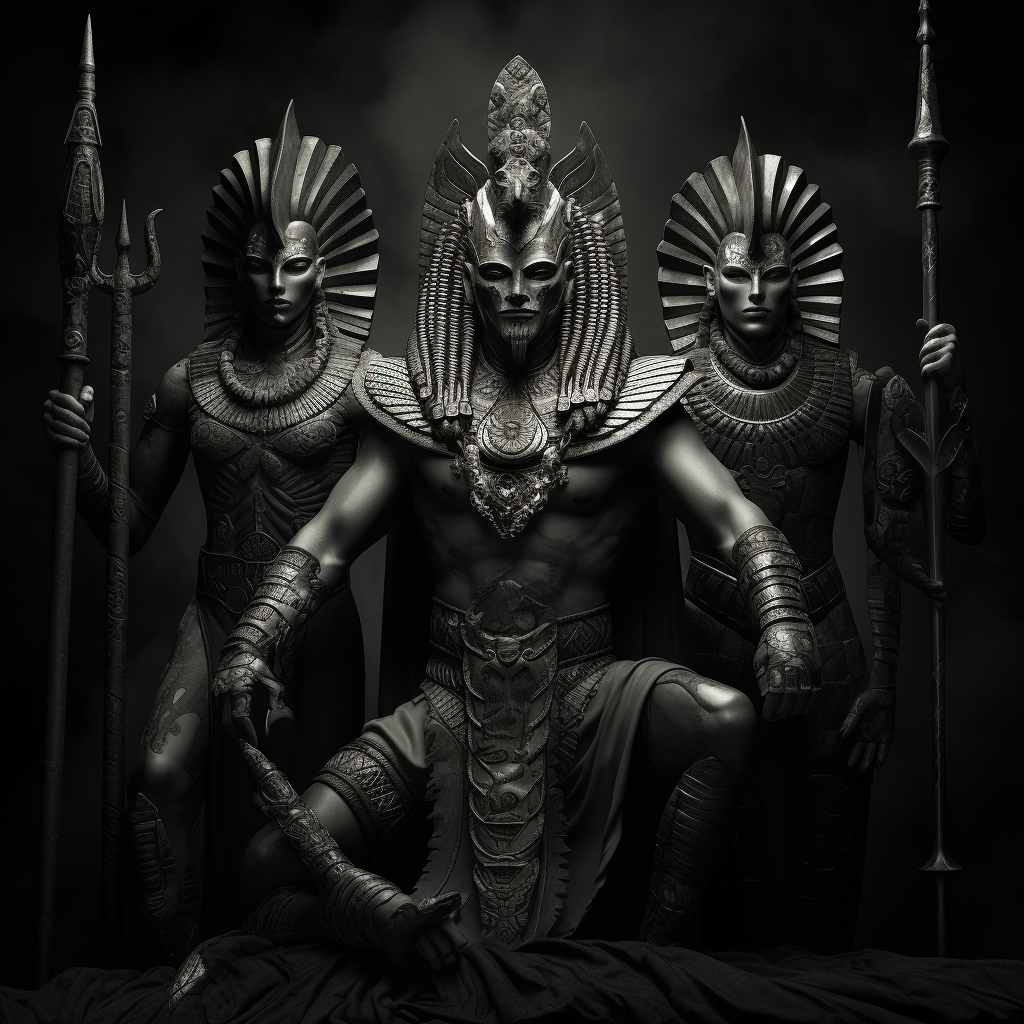Research/Experiments
Philosophy/Poetry/Art
Tarot
Blog
Members
The Archetypes
News/Forum
Egyptians

The ancient Egyptians were a civilization that emerged along the Nile River around 3100 BCE and lasted for over 3,000 years. They were known for their advanced architecture, engineering, agriculture, and religious practices. Egyptian mythology played a significant role in their daily lives and cultural practices, and was characterized by a complex pantheon of gods and goddesses with specific domains of influence.
Origins of Egyptian mythology: The origins of Egyptian mythology are unclear, but it is thought to have developed gradually over time through the blending of various regional beliefs and practices. The earliest gods and goddesses were associated with natural phenomena, such as the sun, sky, and Nile River, and were often depicted in animal form.
Beliefs and practices: Egyptian mythology was centered on a complex pantheon of gods and goddesses, many of whom had specific domains of influence and areas of expertise. Among the most important deities were Ra, the sun god, Osiris, the god of the afterlife, and Isis, the goddess of fertility and motherhood.
The Egyptians believed that the gods and goddesses controlled all aspects of human life and the natural world, and they developed complex rituals and religious practices to honor and appease these deities. These practices included the construction of elaborate temples and tombs, the performance of animal sacrifices, and the use of divination to communicate with the gods.
Egyptian mythology also included a rich tradition of epic tales, such as the story of Osiris, in which the god is murdered by his brother and then resurrected by his wife Isis, and the story of the goddess Hathor, in which she embarks on a journey to confront her father and return balance to the universe.
Legacy of Egyptian mythology: Egyptian mythology had a profound influence on the development of later civilizations in the region, including the Greeks and the Romans. Many of the stories and religious practices associated with the Egyptian pantheon were adapted and adopted by these civilizations, and they continue to be the subject of interest and study today.
Egyptian mythology also had a lasting impact on the development of the Abrahamic religions, including Judaism, Christianity, and Islam. Many of the stories and themes found in the Hebrew Bible and the Quran, such as the story of Moses and the Ten Commandments, can be traced back to Egyptian mythology.
In summary, Egyptian mythology is the collection of myths and legends associated with the ancient civilization of Egypt, which flourished along the Nile River for over 3,000 years. It is characterized by a complex pantheon of gods and goddesses, epic tales of heroism and adventure, and a deep sense of connection between the human and divine worlds. Egyptian mythology had a profound influence on the development of later civilizations in the region, as well as on the Abrahamic religions, and continues to be the subject of interest and study today.
